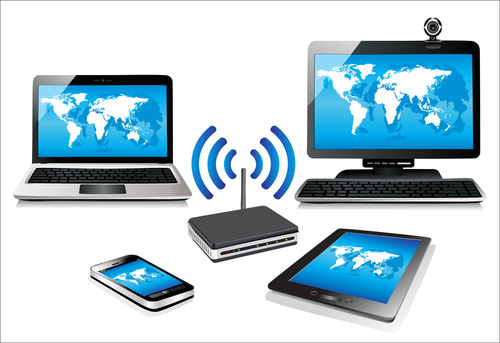

Are Strangers Connecting To Your Wireless Network?
Wireless networks have come a long way in the past decade. While you enjoy speeds faster than ever and enhanced security, there’s still an ever-present threat of someone stealing WiFi. More devices connected to your network means slower connection speeds and more bandwidth being used. Andy O’Donnell of About recently explained how to tell if someone is freeloading on your wireless network.
- Check Your Router’s Admin Interface
Every router has a way to log-in and change settings. If you’re not sure how to do this, check the user guide or search for information online. Once you’ve logged in, look for a ‘wireless configuration’ page or ‘wireless status’ page. Here you’ll find a list of the devices connected to your network. In one column, you’ll see the MAC address, which can be used to determine what type of device is being used. In the next column, you’ll see the IP address. These two numbers help you tell the trusted users from the freeloaders.
- Count Devices
Take a moment to think about every device in your home that should be connected to your network. That’s every smartphone, laptop, tablet and desktop that’s using the internet. Remember that even a video game console and some cameras might be using WiFi. Now, compare that number to the number of devices listed in the router’s admin interface. If they don’t match up, then you’ve got someone else connected that shouldn’t be. This is where the MAC addresses will come in handy. By using a MAC Vendor look-up site, you’ll be able to determine the manufacturer of each device on your network. If there’s a device found that you don’t own, you can be certain that a stranger is using your internet connection.
- Lock Down Your Network
Having unwanted guests on your wireless network is a sign that your security isn’t tight enough. To remedy this situation, start by enabling WPA2 encryption. Then, change the network’s name and the password required to log-in. Don’t use commonly known words like the names of children or pets. Treat your WiFi password like your bank’s website password. Don’t use full words and mix in numbers and symbols.
Properly securing your wireless network not only helps keep unwanted devices from connecting to it, it also ensures that data you send through your router isn’t monitored or stolen.
For help improving the security of your home network or the one at your office, call Geek Rescue at 918-369-4335.
April 7th, 2014








